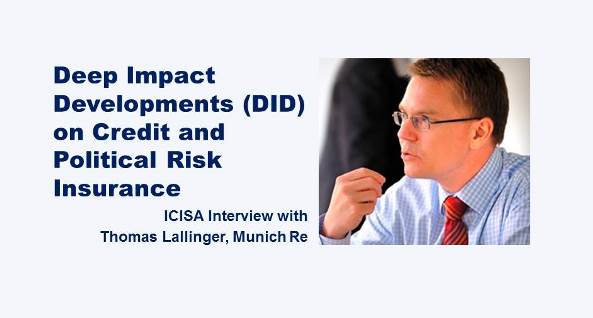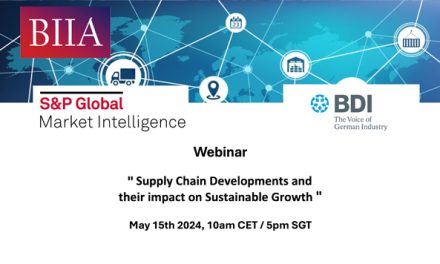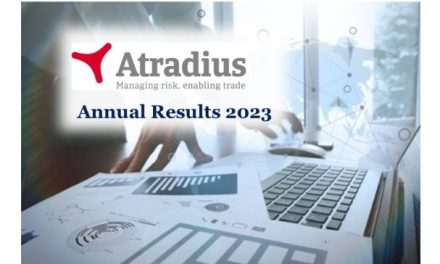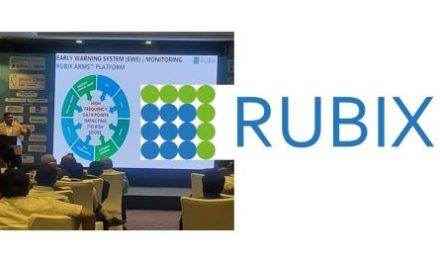ICISA interview with Thomas Lallinger, Munich Re
During the ICISA Spring Meetings in Munich last March Thomas Lallinger held a presentation in which he discussed his views on the disruptive technological developments that are rapidly gaining ground and how these may affect our industries and the society at large. He introduced his own term ‘Deep Impact Developments (DID)’ to jointly describe some of these different yet correlated technological advancements. Thomas was happy to share his thoughts on these developments in more depth with the readers of The ICISA Insider.
Deep impact developments
“DID is no “official” term, I am using it to make clear that there are a couple of things happening, that will – in a very root-basic manner – change many, if not all aspects of our lives. This will not be limited to the way we work, but affect every minute of our future days” Thomas explains. In his view DID will affect the trade credit insurance and surety industries in a dramatic way.
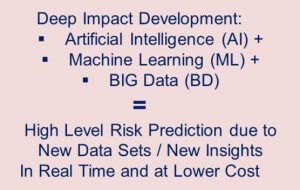 Thomas distinguished some of the main developments: “The most important DID are Artificial Intelligence (“AI”) and “Machine Learning” (“ML”), two terms that are somewhat overlapping, but not fully, and the availability and usability of what people call “Big Data” (“BD”). BD includes two different aspects: The computerized usage of already existing information (e.g. by digitizing paper-based, analogue data sets), and the generation of new information (i.e. data sets) that today cannot be broadly generated, or only at uneconomic costs.
Thomas distinguished some of the main developments: “The most important DID are Artificial Intelligence (“AI”) and “Machine Learning” (“ML”), two terms that are somewhat overlapping, but not fully, and the availability and usability of what people call “Big Data” (“BD”). BD includes two different aspects: The computerized usage of already existing information (e.g. by digitizing paper-based, analogue data sets), and the generation of new information (i.e. data sets) that today cannot be broadly generated, or only at uneconomic costs.
The latter will come from the ubiquitous application of mass sensor technology, another DID, called “Internet of Things” (“IoT”), which is widely not being recognized for its future massive impact on almost everything.” Thomas stresses that data will eventually play a vital part in everyone’s lives: “At a certain point in time, everything which can be measured using sensors of all kinds, will be measured and analysed, be it at production line machinery, in our refrigerators, or in our bodies. Sensors will be stuck on, plugged in, or inserted into everything that provides data, which can be used to steer, alert, monitor, or trigger. This will fuel the BD capabilities.”
Threats and opportunities
Despite the unavoidable changes that will be brought on by technological advancements, Thomas is optimistic about the future of our industries. When asked about the threats to our industries he explains: “This very much depends on how you define “threat”. Our industry as such will not be threatened at all.
I am convinced that credit, surety, and political risk insurance have a brilliant future. But DID will dramatically change the way how our industry works. Processes will be redefined, new tasks will emerge or old ones made redundant, functions and positions will be redefined, created or disappear.
This might result in a threat for existing functions or positions – e.g. when almost all credit decisions will be taken by computers, on the basis of information collected by computers, analysed by algorithms, and communicated between computers – but will not mean a threat for the industry as such.” Thomas stresses that human decision-making will remain decisive in our industries:
“Nevertheless we should also not ignore the downsides of these changes. For example: a human credit underwriter might have a bad day, suffer moments of insufficient concentration or enjoy distraction, and therefore make the one or other mistake. nA badly programmed or wrongly parametrized credit decision algorithm will make everything “wrong”, until you detect the mistake and correct it. That is one good news: even if we do not perform all tasks as we are used to do it today, the human factor will remain decisive for the success of any ‘digitized world’.”
While there are many challenges that have to be overcome, Thomas believes that embracing DID could make our industries more relevant than ever: “First of all, the quality – especially breadth and depth – of decision relevant information will increase. As a consequence, the quality of decisions should improve as well. Algorithm-based credit limit decisions are – by nature – faster, bias-free, always objective in line with the given parameters, never intuitive and fully comparable. Speed shall increase, products should become more flexible, and in the future, a tailored just-in-time pricing should reflect all individual and transactional factors. Maybe total costs will decrease, improving profit margins for shareholders or enabling innovative investments.” For reinsurers, Thomas foresees a changing but still relevant role: “I see a sustainable value added by reinsurance even in a digital era. One consequence of improved quality of data availability, speed and decision-making (as referred to above) is that the risk management abilities of primary insurers will increase. This might have an influence on the HOW, but not on the IF of reinsurance buying.”
Preparing for change is key
Thomas mentions that our industries are currently not at the forefront of digitization, however: “as we provide a service which roots deeply into the accounting, outstanding receivables, financing and cash flow processes of our clients, they do not expect radical change in what we do and how.
Every digitization effort must improve the customer experience, or the solution provided, and should be introduced and implemented step by step in a thorough and reliable manner. Nevertheless, we must be well aware of potential disruptive business models or game changing new competitors from outside our industry. Do not feel safely ring-fenced” Thomas notes.
He further advises to those (especially the older generation) working in our industries to get familiar with the latest developments as soon as possible: “Given that the average age of the well-disposed reader of this article is most probably above mid-40 at best, I can only suggest that you try to get acquainted to the way of working and to the language being used by the upcoming young and hungry next credit/surety generation. If you do not know what a TED talk tells, what are the success factors of a decent Fuck-Up Session1, or what people are drinking during a Pitch-Night, find it out soon.” Thomas foresees an important role for associations like ICISA to offer the support needed to its members in coping with the many challenges ahead: “For topics like the DID, I see the role of an Association like ICISA in providing a platform for networking and discussion, spreading market intelligence, informing about news and facts, and making sure that we always “look over the fence” if the wolf is watching us.”
 Courtesy of ICISA: International Credit Insurance and Surety Association – Published in the June Issue of the ‘THE ICISA INSIDER’
Courtesy of ICISA: International Credit Insurance and Surety Association – Published in the June Issue of the ‘THE ICISA INSIDER’
BIIA’s Editor-in-Chief is an avid reader of the ‘ICISA Insider’
1 Editorial Comment: We were not familiar with this term and decided to see whether this term is actually real? ‘Fuck-Up Session’ as defined by Corporate Rebels
